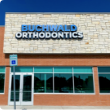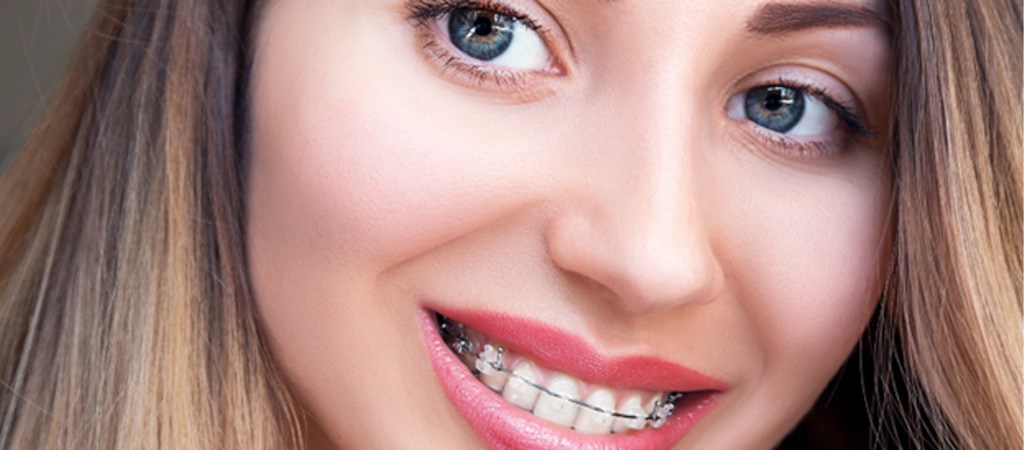Braces Prosper & Frisco
Transform Your Smile & Quality of Life
When someone says “orthodontics,” it’s very likely that you picture traditional braces. Braces can do much more than simply get rid of gaps between teeth – they can improve oral function, relieve chronic facial pain, and even make you more articulate! At Buchwald Orthodontics, we offer both metal braces and clear braces for patients of all ages. If you’re ready to start exploring options for yourself or a loved one, contact us today to learn more about braces in Frisco and Prosper. We look forward to meeting you soon!
How Do Braces Work?
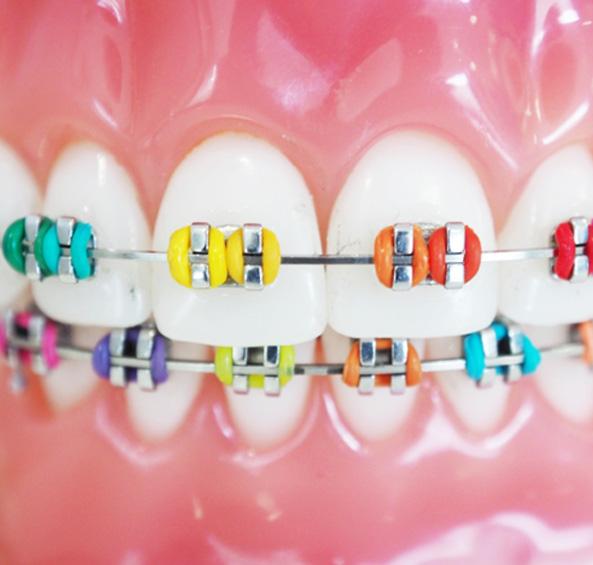
Braces offer a reliable and effective solution to a variety of orthodontic issues. They feature brackets, which are either steel or ceramic. These brackets are attached with a strong arch wire. The tension in the wire guides the teeth into straighter positions, gradually shifting them over the course of several weeks. We will see you for periodic checkups to ensure you are making progress in your treatment and answer any questions you may have.
Types of Braces

Dr. Buchwald is proud to offer a variety of options when it comes to orthodontic treatments. Each of the following types of braces are available at both our Frisco and Prosper orthodontic offices. They each have their own benefits and advantages. If you have any questions about the options below, please don’t hesitate to contact our orthodontic office. We will be happy to answer any questions you may have.
Metal Braces
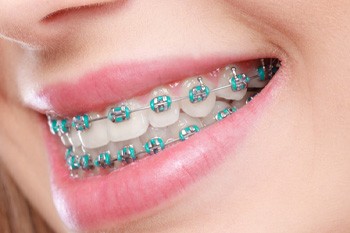
Metal braces use stainless steel brackets and metal wires to adjust your teeth into the desired position. At Buchwald Orthodontics, we only use high-tech self-ligating braces. This means that the braces have little doors on them that hold the wires in position. These doors eliminate the need for an additional steel wire to be tied around each brace at every visit. This makes your braces more comfortable to your cheeks, lips, and tongue. it also allows adjustments to be gentler and less time consuming.
Clear Braces
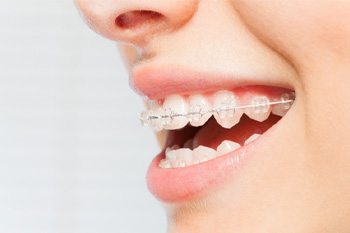
Clear braces are similar to metal braces. The big difference is that they use a ceramic bracket that is almost invisible, making your orthodontic treatment just as effective yet less noticeable. Clear braces are more popular for adult patients because of their esthetic appeal. The clear braces we use at Buchwald Orthodontics are also self-ligating, giving them the same advantages as the metal ones. The only drawback to these braces is that they are a little more fragile than metal braces. The clear elastics used with this system are also more prone to discoloration from dark foods and drinks.
What Orthodontic Issues Can Braces Fix?

Braces are one of the most powerful and reliable orthodontic treatments available. They are able to correct mild, moderate, and oftentimes even severe orthodontic issues. First, we will meet with you for a one-on-one consultation to examine your teeth and determine if braces are a good choice for you. From there, we will work to create a custom treatment plan to address the orthodontic problems we’ve identified. Some of the most common include the following:
Bite Misalignment
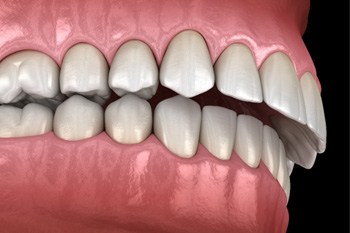
Overbite, underbite, crossbite, and open bite are all considered bite misalignment issues. When the jaws do not come together properly or evenly, your appearance and oral functions may both suffer. Undue pressure on the jaw joints may cause inflammation, pain, clicking, or lockjaw. The condition puts your teeth at risk of damage as well. Braces have long been proven to be an effective method for overcoming all manner of bite misalignment problems.
Crowded & Crooked Teeth
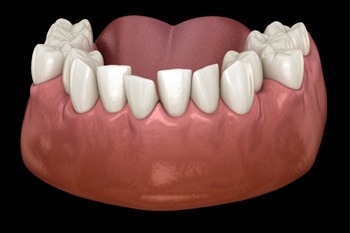
Many people wish to straighten their crowded or crooked teeth for esthetic reasons. However, it is also important to do so for the well-being of your enamel. Crooked teeth wear each other down, weakening them and making them more prone to cracks, chips, and sensitivity. This could potentially lead to infection, which may call for a root canal or tooth extraction. Fortunately, braces can realign your teeth into a healthier position.
Gapped Teeth
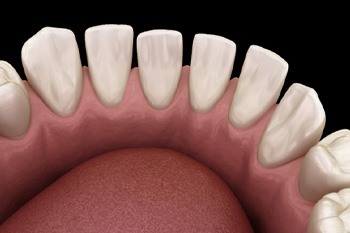
Gaps between the teeth pose a risk to your gum health. Should food debris become lodged between your teeth, bacteria can accumulate and attack your gums. The resulting infection is called gum disease. The initial stage, gingivitis, can be treated and reversed. However, the more serious periodontitis can cause permanent damage to your teeth, jawbone, and even your overall health. With braces, we will close these gaps to provide optimal oral health.
Emergency Care for Braces
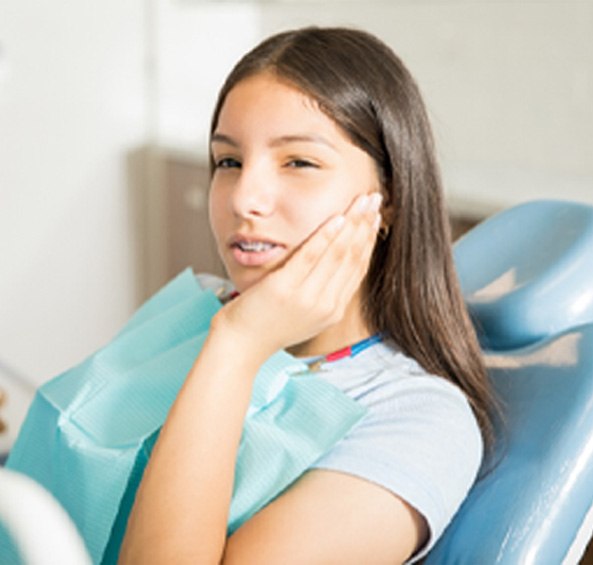
Emergencies involving braces and orthodontics are very rare. However, we believe that learning what to do during an orthodontic emergency can cut down potential anxiety in the future. If your braces are broken or if you are experiencing moderate to severe discomfort, do not hesitate to give our office a call. We will see you as quickly as possible to address the situation and get you back on the road to a straighter smile.
Learn More About Emergency Care for Braces
Understanding the Cost of Braces

It is impossible to give an exact cost for treatment until we have examined you and formulated a treatment plan. We will cover the exact cost and financial options during the initial examination. We provide many financing options to accommodate your needs and we will review these with you. We will also review your insurance policy and help to maximize your benefits and file your claims.
Everyday Life with Braces

Wearing braces will require some adjustments to your daily life. For example, you’ll likely need to change your diet slightly to avoid certain foods. You may also need to get a customized mouthguard if you intend to play a contact sport. Fortunately, we will be with you every step of the way to ensure your smile stays on track. Read on to learn some of the most important things to keep in mind.
Foods to Avoid

Generally speaking, foods that are too hard or sticky must be avoided with braces. Hard foods can break or damage the brackets and wires. Sticky foods can get caught in between the brackets and wires and even pull brackets off your teeth. Examples of hard foods to avoid are ice, nuts, hard taco shells/hard chips, hard bread crust/pizza crust, corn on the cob, apples, and carrots (unless cut into small pieces), and hard candies (Jolly Ranchers, lollipops, etc). Some sticky foods to avoid would be gum (sugar-free or regular), toffee, caramel, and sticky candies (Starburst, Tootsie Rolls, etc.). You can still eat sugary foods with braces such as cake, ice cream, cookies, and pie. However, it is important to minimize these desserts because they can cause tooth decay and related problems. In addition, nail biting, pen and pencil chewing, and chewing on foreign objects must be avoided with braces because these objects can easily break wires.
Playing Sports with Braces

You can still play sports while undergoing orthodontic treatment. However, it is recommended that you wear a mouthguard to protect your teeth and braces. During orthodontic treatment, it is important not to boil your mouthguard to customize it to your teeth. This can either prevent your teeth from moving as they should or break braces off your teeth. Therefore, you should use a standard non-customized mouthguard or get a mouthguard that is designed for orthodontics. Feel free to ask us for assistance in choosing the proper mouthguard to help protect your teeth and braces during your orthodontic journey.
Soreness Caused From Braces and Appliances

When you first get your braces, you may notice that your teeth and mouth feel a little tender or sore. This is perfectly normal and will decrease as you become accustomed to the braces/appliance. To relieve the pain, we recommend taking an over-the-counter medicine such as Tylenol or Advil. It is also not uncommon for your lips, cheeks, and tongue to become irritated for one to two weeks. they will grow tougher and become used to the braces/appliance. You can dry the area on your brace/appliance that is causing discomfort, take a pea-sized amount of wax, and place it there to help. If you run out of wax, please feel free to ask us for more.
Retainer Instructions
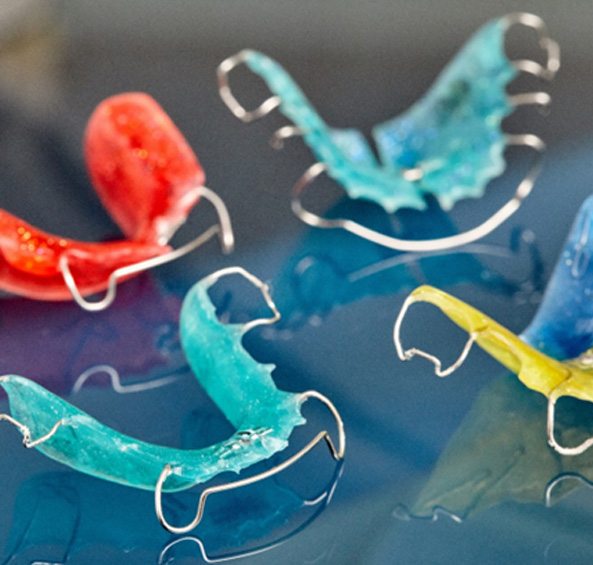
Once your treatment with braces is complete, we will design a retainer for you. Retainers are essential for keeping your teeth in their newly aligned positions and protecting your investment. Should you neglect to wear your retainer as instructed, your teeth may drift out of place again. If you have any questions about your retainer, don’t hesitate to contact us for information.
Braces FAQs
Do I need to be referred by my general/pediatric dentist to schedule an appointment with an orthodontist?
No, you do not. Many of our patients are referred by their general/pediatric dentist, Many other patients take the initiative to schedule an examination themselves.
At what age should I schedule an appointment for my child to have an orthodontic screening?
The American Association of Orthodontists recommends an orthodontic screening at age 7. By this age, several permanent teeth have erupted in most children, allowing us to effectively evaluate their orthodontic condition.
Will my teeth straighten out as they grow?
No, they will not. The space available for the front teeth does not increase as you grow. In most people, after the permanent molars erupt, the space available for the front teeth decreases with age.
How do I schedule an appointment for an initial exam?
If you or your child could potentially benefit from orthodontic treatment, simply call our orthodontic office, send us an email, or fill out our appointment request form online. We will be happy to schedule an appointment for you.
What will happen at the initial exam?
Each patient and parent will be seen by Dr. Buchwald and his team. They will acclimate you to our orthodontic office and prepare you for the initial exam. We will take the necessary photographs and X-rays to allow us to make a proper diagnosis. Dr. Buchwald will complete an examination and explain in depth his findings and any recommendations for treatment.
How often will I have appointments when wearing braces?
Our appointments are scheduled according to each patient’s individual needs. Most patients in braces will be seen every 5 to 10 weeks. However, there are some specific situations that require more or less frequent appointments, and we will schedule those accordingly.
Do braces hurt?
Generally, braces do not hurt. After certain visits, teeth may be sore for a few days. In these situations, pain medications such as Advil or Tylenol will ease the discomfort.
Can I return to school the day I get my braces?
Yes, there is no reason to miss school because of an orthodontic appointment.
Can I still play sports with braces?
Yes, we recommend wearing a mouth guard to protect your teeth and braces. Be sure to ask us which mouthguards are best to wear with braces.
Do I need to see my general/pediatric dentist while in braces?
Yes, regular cleanings with your dentist are important while in braces. Your dentist will help determine the interval between cleaning appointments that is best for you.
Are there foods I cannot eat while I have braces?
Yes, there are. Once your treatment begins, we will provide you with a comprehensive list of foods to avoid. A general rule of thumb is that anything too hard (ice, hard candies, nuts) can break off a brace/wire and anything too sticky (sticky candies, gum, taffy) can pull off a brace/wire or get stuck in your braces/wires.
